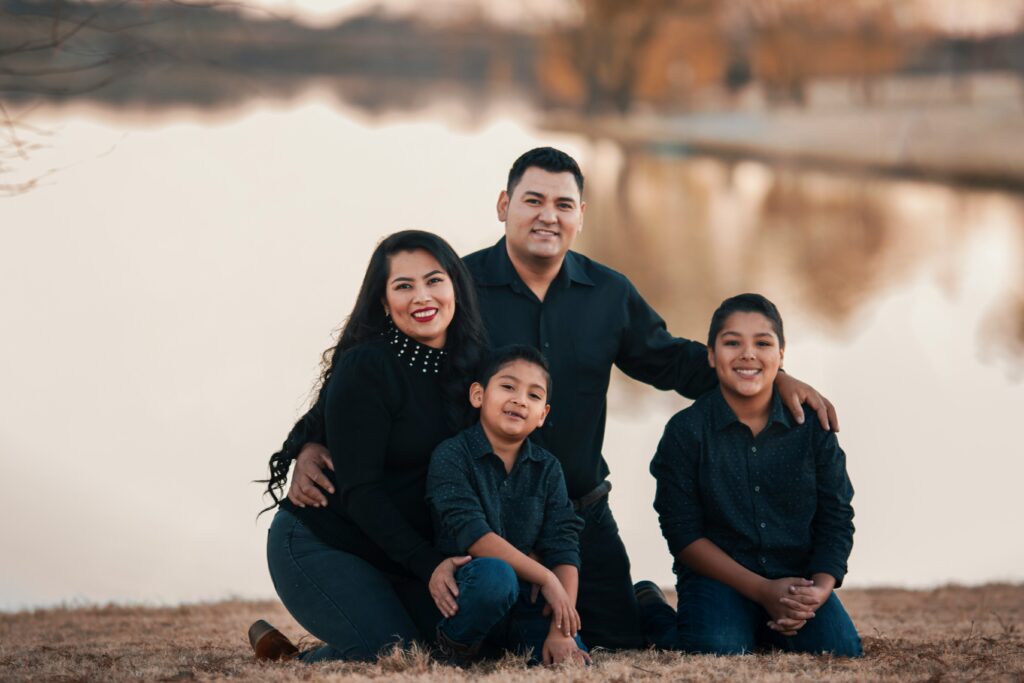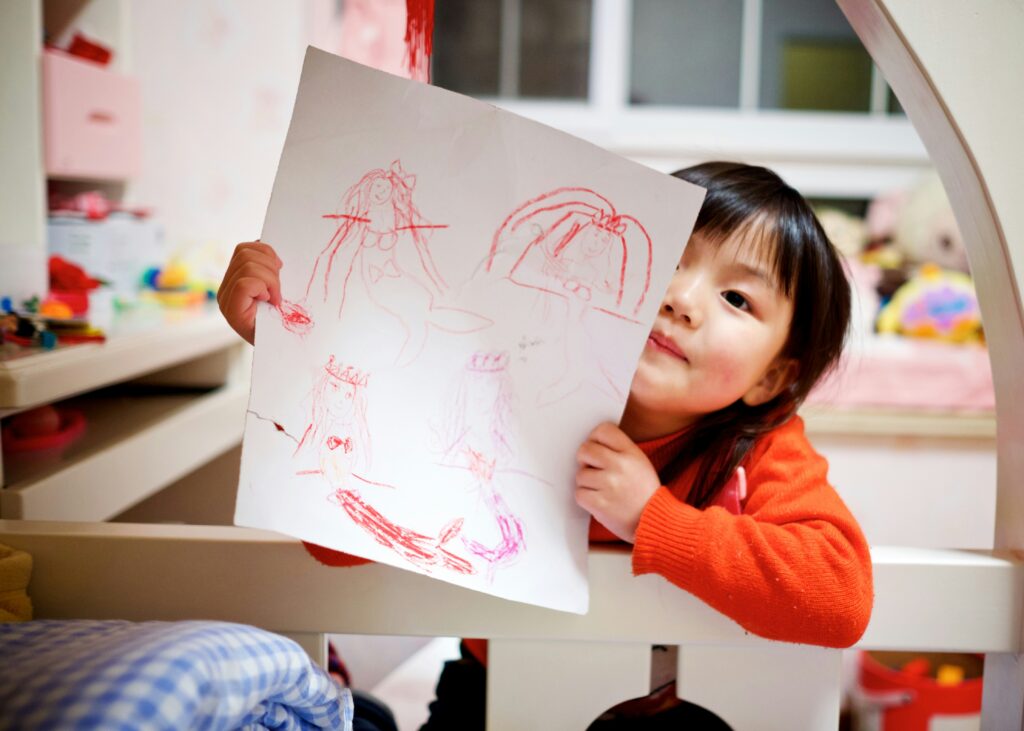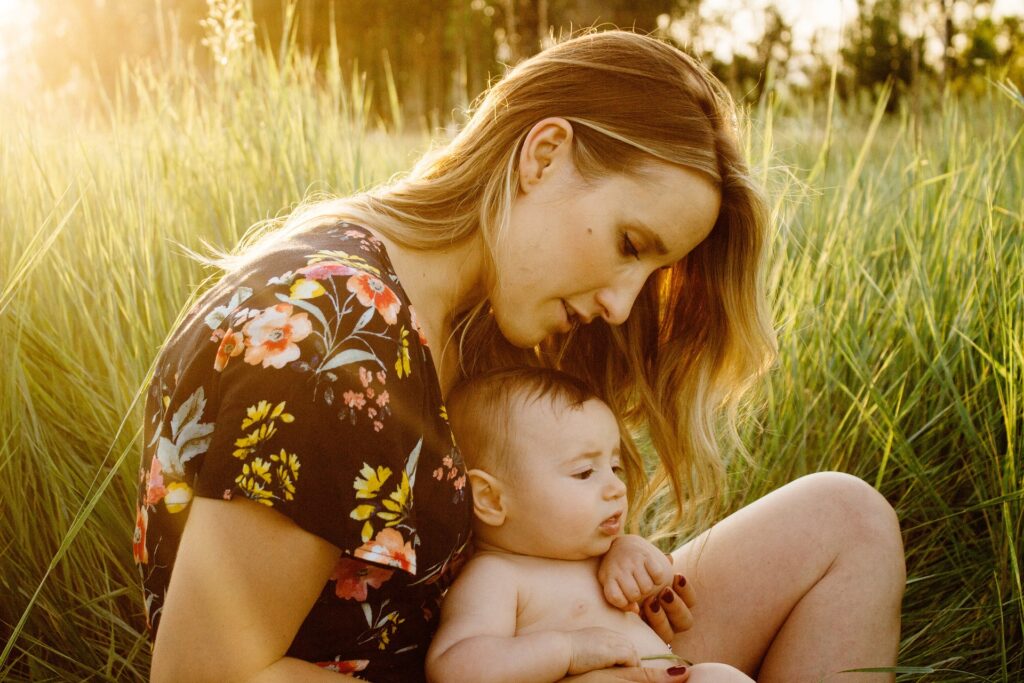Are you going through a divorce or remarrying and has your child developed anger issues? Has your child experienced bullying, leading to low self-esteem? Is your elementary age student being put in time out or being sent to the principal’s office regularly? Do you get calls from your child’s principal letting you know that your child has misbehaved or acted out yet again? Does your child have challenges with transitions from home, to school, to recreational activities? Family therapy and child therapy in Charlotte, North Carolina at The Healing Collective allows you and your child to learn how to regulate emotions.
Does it feel like your child or adolescent has emotional meltdowns at dinner time, leading to family chaos, conflict, and tension?
When your child has emotional meltdowns, do you feel frustrated, tired, burnt out and exhausted regarding how to help your child? And, does it feel like no matter what you say, your child is always pushing your boundaries and pushing your patience level?
Looking back at your own childhood, did you have a father that showed aggressiveness, explosive anger issues, and never taught you about emotional vulnerability or emotional expression? Did you have an alcoholic parent and have to grow up really fast yourself? And, thinking back to your own childhood, was your mother emotionally unstable, dismissive, and didn’t give you the love, comfort, and closeness that you so deeply craved when you were crying or upset?
We help your whole family get more connected, feel closer, and stronger at The Healing Collective in Charlotte, North Carolina.
Call Us To Get Started Phone: (803) 216-1604
Family Therapy and Child Counseling in Charlotte, North Carolina at The Healing Collective Supports Children Through Major Life Experiences
The Role of Family Therapy and Child Therapy in Charlotte, North Carolina
Children encounter a variety of significant life experiences that can deeply impact their emotional well-being and development. These experiences, ranging from divorce and remarriage to social anxiety and loss, can be challenging for children to navigate on their own. Family therapy and child therapy in Charlotte, North Carolina, offer valuable support systems to help children process these experiences, build resilience, and develop coping strategies for managing life’s ups and downs.
Addressing Major Life Transitions in Therapy
Divorce and Remarriage:
Divorce and remarriage can be emotionally tumultuous for children. Family therapy in Charlotte, North Carolina at The Healing Collective provides a safe space for children to express their feelings about the changes in their family dynamic, understand their emotions, and develop healthy coping mechanisms. Child therapy offers individualized support to help children navigate complex feelings of loss, confusion, and adjustment.
Blending Families:
To note, the blending of families introduces new relationships and dynamics that can be challenging for children to navigate. Family therapy helps families address communication barriers, establish boundaries, and build trust within the blended family structure. Child therapy in Charlotte, North Carolina at The Healing Collective offers children a supportive environment to express concerns, build connections with new family members, and adjust to their changing family dynamic.
Birth of a Sibling:
The birth of a sibling can evoke a range of emotions, from excitement to jealousy and resentment. Family therapy helps parents prepare siblings for the arrival of a new baby, foster sibling bonds, and manage jealousy and rivalry. Child therapy in Charlotte, North Carolina at The Healing Collective provides children with a space to express their feelings about the new addition to the family and receive support in adjusting to their new role.
Social Anxiety:
Now, social anxiety can significantly impact a child’s social and emotional well-being. Therapy helps children understand the root causes of their anxiety, develop coping strategies, and build confidence in social settings. Through individual and group therapy sessions, children learn social skills, practice assertiveness, and build supportive peer relationships.
Grief Experiences:
Loss, whether it’s the death of a loved one, a pet, or a significant life change, can be profoundly difficult for children to process. Family therapy in Charlotte, North Carolina at The Healing Collective provides children with a safe space to express their grief, explore their feelings of sadness and loss, and develop healthy ways to cope with their emotions. Family therapy offers support to families as they navigate the grieving process together and find ways to honor and remember their loved one.
Relocation:
Moving to a new home or city can disrupt a child’s sense of stability and belonging. Therapy helps children adjust to their new environment, cope with feelings of loss and homesickness, and build new social connections. Through therapy, children learn resilience, adaptability, and problem-solving skills to navigate life transitions successfully.
Loss of a Grandparent or Sibling:
To note, the loss of a grandparent or sibling can have a profound impact on a child’s emotional well-being. Therapy provides children with support to process their grief, express their emotions, and find ways to remember and honor their loved one. Family therapy helps families support each other through the grieving process and find ways to cope with their loss together.
Bullying at School:
As well, bullying can have lasting effects on a child’s self-esteem, confidence, and emotional well-being. Furthermore, family and child therapy in Charlotte, North Carolina at The Healing Collective offers children a safe space to discuss their experiences, learn assertiveness and conflict resolution skills, and build resilience in the face of adversity. Family therapy helps parents support their child, address bullying behaviors, and create a supportive home environment.
Learning or Physical Disabilities:
Children with learning or physical disabilities may face unique challenges in navigating school, social relationships, and daily activities. Therapy helps children develop self-acceptance, build self-esteem, and learn coping strategies to overcome obstacles. Family therapy provides parents with support, resources, and advocacy skills to help their child thrive.
Family therapy and child therapy in Charlotte, North Carolina, offer essential support systems to help children navigate these experiences, process their emotions, and develop healthy coping strategies.
Major life experiences can have a profound impact on children’s emotional well-being and development. By providing a safe and supportive environment for children to express themselves, therapy helps children build resilience, adaptability, and emotional intelligence, empowering them to thrive in the face of life’s challenges.
Call Us To Get Started Phone: (803) 216-1604

At The Healing Collective, Our Child Therapists in Charlotte, North Carolina Understand A Frustrated Child’s Emotional Needs Through Child-Centered Play Therapy
Children, especially younger ones, often struggle to express their thoughts and emotions verbally in the same way adults do. Their cognitive and linguistic development is not yet advanced enough to articulate complex feelings or understand the abstract nature of many emotional experiences. This limitation makes traditional talk therapy less effective for children.
Instead, child-centered play therapy provides an alternative, developmentally appropriate approach that allows children to communicate their feelings, process their emotions, and navigate anxiety, anger, and other emotional challenges in positive ways.
Why Children Can’t Verbally Express Emotions Like Adults?
Children’s ability to verbalize emotions is limited by several developmental factors:
Cognitive Development:
Young children are in the early stages of cognitive development. They are just beginning to understand the world around them and often lack the vocabulary to describe their emotions accurately. Concepts that adults take for granted, such as guilt, frustration, or anxiety, can be difficult for children to identify and articulate.
Emotional Awareness:
Children are still learning to recognize and label their emotions. They may feel overwhelmed by strong feelings without understanding what those feelings are or why they are experiencing them. This can lead to frustration and acting out, rather than verbal communication.
Abstract Thinking:
The ability to engage in abstract thinking, such as reflecting on past experiences or hypothesizing about future outcomes, is not fully developed in young children. This makes it challenging for them to participate in the type of reflective conversation that is typical in adult counseling.
Limited Vocabulary:
Even if children recognize their emotions, they often lack the extensive vocabulary needed to express complex emotional states. This limitation means that they might not be able to explain their feelings and thoughts in a coherent manner.
The Role of Child-Centered Play Therapy and Child Therapy in Charlotte, North Carolina at The Healing Collective
Child-centered play therapy offers a therapeutic approach that aligns with children’s developmental stages and natural communication methods. This form of therapy leverages play, a primary mode of communication for children, to help them express their emotions, understand their experiences, and develop coping mechanisms.
Using Play as Communication:
To note, play therapy allows children to communicate their feelings and experiences through play rather than words. Children naturally use play to explore their world and express themselves. In a therapeutic setting, toys, games, and creative activities become tools for children to convey what they might not be able to say. For example, a child might use dolls to act out a family conflict or build a scenario with blocks that represents their current emotional state.
Processing Emotions Through Play:
Play provides a safe and non-threatening way for children to process their emotions. By engaging in play, children can explore and work through their feelings at their own pace. Therapists can observe and interact with children during play to gain insights into their emotional world and guide them toward understanding and resolving their feelings.
Beyond Words:
Play therapy goes beyond verbal communication, which can be limiting for children. It allows for the expression of unconscious thoughts and feelings that children might not be able to articulate. Art, music, and other creative therapies are often integrated into play therapy, providing multiple avenues for children to express themselves. For example, a child might draw a picture that reveals feelings of fear or anger that they cannot yet put into words.
Developing Coping Skills:
Through play therapy, children can learn and practice coping skills in a supportive environment. Therapists introduce strategies for managing emotions, such as deep breathing, counting, or creating a safe space within their play. These skills can be reinforced through repeated play scenarios, helping children to internalize and use them in real-life situations.
How Is Play Therapy and Child Therapy in Charlotte, North Carolina at The Healing Collective Supportive For Children?
Children are not equipped with the cognitive and linguistic abilities to express their emotions and experiences verbally as adults do. Child-centered play therapy recognizes these developmental limitations and provides a therapeutic approach that utilizes play as a natural form of communication for children. By using play to express feelings, understand experiences, and develop coping mechanisms, play therapy helps children navigate anxiety, anger, and other emotional challenges in positive ways. This approach not only supports emotional regulation but also fosters a deeper understanding of their own emotional world, promoting healthier development and well-being.
Call Us To Get Started Phone: (803) 216-1604

When an elementary-age child experiences an anger outburst, the visible anger often masks deeper, more complex emotions. These underlying feelings can be challenging for a child to express verbally. Some of the big feelings that might be driving their anger include:
Frustration:
The child might be struggling with a task or situation they can’t control or understand, leading to feelings of helplessness and frustration.
Fear:
As well, fear of failure, fear of the unknown, or fear of being hurt can manifest as anger when the child feels threatened or insecure.
Sadness:
Grief, disappointment, or feelings of rejection can sometimes come out as anger because these emotions are too overwhelming to express directly.
Anxiety:
Worrying about school, friendships, or family issues can create a buildup of stress, leading to angry outbursts as a release.
Shame or Embarrassment:
Experiences that make a child feel ashamed or embarrassed can lead to defensive anger as a way to protect themselves.
Feeling Overwhelmed:
Overstimulation from too many activities or sensory inputs can overwhelm a child, causing them to lash out in anger.
How Family Counseling and Child Therapy at The Healing Collective Can Help Your Child Thrive
Family counseling and child therapy in Charlotte, North Carolina, can provide a supportive environment for children to process these complex emotions. These therapies use play and creative, child-centered approaches to help children understand and express their feelings more effectively.
Play Therapy:
Now, play therapy uses toys, games, and creative activities to help children express their emotions and experiences. Since children naturally communicate through play, this approach allows them to explore and articulate their feelings in a safe and non-threatening way. For instance, a child might use dolls or action figures to act out a scenario that is troubling them, giving therapists and parents insights into their inner world.
Creative Therapies:
Art therapy, music therapy, and other creative modalities offer children alternative ways to express their emotions. Drawing, painting, or making music can help children externalize their feelings and begin to understand and manage them. These therapies can be particularly beneficial for children who find it difficult to articulate their emotions verbally.
Benefits of Family Therapy, Play Therapy, and Child Therapy in Charlotte, North Carolina for Emotional Outlets
Play therapy is particularly supportive for children who need emotional outlets. Here’s how it helps:
Safe Expression:
Play therapy provides a safe space where children can express their feelings without fear of judgment or punishment. This freedom can be incredibly liberating for a child, allowing them to explore their emotions openly.
Emotional Processing:
Through play, children can work through their emotions and experiences at their own pace. A therapist can observe and guide this process, helping the child make sense of their feelings and find ways to cope with them.
Building Communication Skills:
Play therapy helps children develop the skills to communicate their emotions more effectively. By learning to identify and express their feelings during play, children can begin to articulate these emotions in real-life situations.
Developing Coping Strategies:
Our child and family therapists use play to introduce and practice coping strategies with children. These might include relaxation techniques, problem-solving skills, or ways to self-soothe when feeling overwhelmed.
Anger outbursts in elementary-age children often mask deeper emotions such as frustration, fear, sadness, anxiety, shame, or feelings of being overwhelmed.
Family counseling and child therapy in Charlotte, North Carolina, can help children process these complex feelings through play therapy and creative, child-centered approaches. Play therapy, in particular, offers a safe and effective way for children to express their emotions, work through their experiences, and develop healthier coping strategies. By providing these emotional outlets, therapy supports children in building the emotional regulation skills they need to navigate their feelings and interactions more effectively.
Call Us To Get Started Phone: (803) 216-1604

When a child experiences an anger episode or emotional meltdown, it can be overwhelming for both your child and you as their parent.
Play therapy, family therapy, and child therapy offer valuable tools to help children emotionally regulate. At The Healing Collective, our team of family therapists and child specialists provide parents with strategies to soothe their children effectively.
Our therapeutic approaches are designed to foster emotional growth, enhance communication, and help you build a stronger parent-child connection.
Call Us To Get Started Phone: (803) 216-1604
How Play Therapy and Child Therapy in Charlotte, North Carolina at The Healing Collective Helps Children Emotionally Regulate
Play therapy is a therapeutic approach that uses play as a medium for children to express their emotions, process experiences, and learn coping skills. It is particularly effective for young children who may not have the verbal skills to articulate their feelings. Here’s how play therapy can help children during anger episodes or meltdowns:
Safe Expression of Emotions:
Play therapy provides a safe and supportive environment for children to express their emotions. Through play, children can act out their feelings and experiences, which helps them process and understand their emotions better. This safe expression reduces the intensity of their emotional responses over time.
Developing Coping Skills:
During family therapy and play therapy, children are introduced to various coping mechanisms to manage their emotions. Therapists use games, toys, and creative activities to teach children how to calm themselves, identify their triggers, and practice self-soothing techniques.
Enhancing Emotional Awareness:
Play therapy and child therapy in Charlotte, North Carolina helps children become more aware of their emotions and the physical sensations associated with them. By recognizing these feelings, children can better understand their anger and learn to manage it more effectively.
How Child Therapy and Family Therapy in Charlotte, North Carolina Supports Parents at The Healing Collective
Child therapy not only benefits children but also equips parents with the tools and knowledge to support their children during emotional crises. Here’s how it can help parents:
Understanding Emotional Triggers:
Therapists work with parents to help them understand the underlying triggers of their child’s anger episodes or meltdowns. This insight allows parents to anticipate and prevent potential triggers, creating a more stable environment for their child.
Learning Soothing Techniques:
Child therapy teaches parents specific techniques to soothe their children during emotional outbursts. These techniques may include deep breathing exercises, calming words, and physical comfort such as hugging. Parents learn how to remain calm and provide a reassuring presence, which helps the child feel safe and understood.
Building Stronger Connections:
Through family therapy and child therapy, parents learn how to connect with their children on a deeper emotional level. This connection is crucial for helping children feel secure and supported, which in turn reduces the frequency and intensity of emotional meltdowns.
Call Us To Get Started Phone: (803) 216-1604
Practical Strategies for Parents From Family Therapy and Child Therapy in Charlotte, North Carolina at The Healing Collective
Active Listening:
Parents are encouraged to practice active listening, which involves fully concentrating on what the child is saying without interrupting. This helps the child feel heard and validated, which can defuse the intensity of their emotions.
Consistent Routines:
Establishing consistent daily routines can provide a sense of security and predictability for children. When children know what to expect, they are less likely to feel overwhelmed and more capable of managing their emotions.
Positive Reinforcement:
Encouraging and rewarding positive behaviors can help children develop better emotional regulation skills. Acknowledging and praising moments when the child successfully manages their emotions reinforces these behaviors.
Play therapy and child therapy offer essential support for children experiencing anger episodes or emotional meltdowns.
These therapeutic approaches help children express their emotions safely, develop coping skills, and enhance emotional awareness. Simultaneously, child therapy equips parents with the tools to understand their child’s emotional triggers, learn effective soothing techniques, and build stronger emotional connections. By working together, children and parents can navigate emotional challenges more effectively, leading to a more harmonious and emotionally secure family environment.
Call Us To Get Started Phone: (803) 216-1604

Why Are Attachment Styles Important When It Comes My Child’s Emotional Meltdowns?
Child therapy at The Healing Collective, located in Charlotte, North Carolina, and Fort Mill, South Carolina, is a vital resource for parents aiming to become more emotionally attuned to their children, especially during challenging moments like emotional outbursts, meltdowns, or panic attacks. Perhaps, you don’t know what to do when your little one is having a massive, emotional meltdown. Maybe, you find yourself getting sucked into an argument with your moody adolescent. At The Healing Collective, we specialize in helping families feel emotionally safe, and calm through seeing your family as a whole.
Understanding and addressing one’s own attachment style can significantly impact the ability to parent effectively and provide a loving, consistent environment for children.
Help For The Whole Family In Child Therapy in Charlotte, North Carolina at The Healing Collective
Emotional attunement means recognizing, understanding, and responding to a child’s emotional needs in a sensitive and supportive manner.
When a child experiences an emotional outburst, meltdown, or panic attack, it is crucial for the parent to remain calm and provide a sense of safety and validation.
Family Therapy Is A Part of Child Therapy in Charlotte, North Carolina at The Healing Collective
Unfortunately, parents are humans too. And, as a parent, you may lose your temper. Or, you may yell back at your adolescent, or even say something you don’t really mean in the heat of a tough moment to your child. When you think about your own upbringing, your own parents were not there for you in the ways you needed emotionally. Your child tends to trigger emotional reactions in you, and you would love to be more aware of this cycle. Thinking back to your own childhood, your father was aggressive. Maybe, he was also an alcoholic. To add, the memories of your father aren’t all bad.
But, you do remember him screaming, yelling, and losing his temper. In your own childhood, you remember your dad being aggressive and explosive with anger. You weren’t allowed to feel safe. Looking back, in your own childhood, your dad never knew how to handle his emotions in a healthy way. He would throw dishes, break property, punch walls, drive aggressively, and used fear tactics to control your whole family.
Call Us To Get Started Phone: (803) 216-1604
Our Child and Family Therapists Teach Parents and Children Emotional Bonding Skills and Emotional Regulation Tools
Your mother never was able to comfort you emotionally.
Maybe, your mother was emotionally chaotic, had her own mental health issues. As well, your mother may have been dismissive of your emotional needs. When you were crying, and were upset, your mother wasn’t there to rub your back. As a child, 20, 30, 40, or 50 years ago, your mother would dismiss you and emotionally neglect you when you wanted a hug or when you were crying.
Tears were not allowed in your family growing up. In your family, you had to put on a perfectionistic mask, look happy, and always hold it together. Tears were a sign of weakness and we’re not allowed. When you did cry, your parents did not give you the emotional nurturing or soothing that you so deeply craved. Now, as a parent yourself, with your own child or teenager, you find yourself unsure what to do.
Child therapy at The Healing Collective offers several approaches to help parents develop emotional soothing skills.
Parent-Child Interaction Therapy (PCIT) is one such approach. PCIT focuses on improving the quality of the parent-child relationship and changing interaction patterns. It provides parents with specific techniques to increase positive behaviors in children, enhance communication, and manage difficult behaviors effectively. Through PCIT, parents learn how to stay calm during their child’s emotional crises, offering a stable and reassuring presence.
Mindfulness-based strategies taught by therapists at The Healing Collective in Charlotte, North Carolina help parents remain present and attentive during their child’s emotional outbursts.
Mindfulness helps parents manage their own stress and emotional reactions, enabling them to respond to their child with empathy and patience rather than reacting out of frustration or anxiety. Similarly, emotion coaching involves helping parents guide their children through their emotions by acknowledging and validating their feelings, setting limits on inappropriate behavior, and helping them find solutions to their problems. Emotion coaching empowers parents to connect with their child on an emotional level, fostering a sense of security and understanding.
Call Us To Get Started Phone: (803) 216-1604
Impact of Parent-Child Attachment Styles
The attachment style a parent has can profoundly influence their ability to parent effectively. Parents with avoidant or anxious attachment styles may face specific challenges in being emotionally attuned to their children.
Parents with an avoidant attachment style may have learned to suppress their emotions and value independence over closeness. This can lead to difficulties in responding to their child’s emotional needs, as they might struggle with providing the necessary comfort and validation during distressing moments.
Child therapy in Charlotte, North Carolina can help parents recognize their tendencies to withdraw and teach them strategies to become more emotionally available and responsive to their children.
Conversely, parents with an anxious attachment style often seek constant reassurance and may become overly involved in their child’s emotional experiences. This can result in a parent reacting with heightened anxiety or overprotectiveness during their child’s emotional outbursts, potentially exacerbating the child’s distress. Therapy can help these parents develop a balanced approach, allowing them to provide the needed support without becoming overwhelmed by their child’s emotions.
Enhancing Parenting Skills Through Child Therapy in Charlotte, North Carolina at The Healing Collective
Working with therapists at The Healing Collective can help parents understand and modify their attachment-related behaviors to better support their children’s emotional development. Therapy encourages parents to explore their own attachment histories and understand how these experiences shape their current parenting behaviors. By gaining insight into their own emotional responses and attachment patterns, parents can learn to differentiate between their own needs and their child’s needs.
Moreover, parents learn techniques to manage their own emotions effectively, which is essential when dealing with a child’s intense emotions.
By modeling healthy emotional regulation, parents provide their children with a powerful example of how to handle difficult feelings. Therapy also helps parents create a more consistent and nurturing parenting approach. This includes learning to set appropriate boundaries while being emotionally supportive, ensuring that the child feels secure and understood.
Child therapy at The Healing Collective in Charlotte, North Carolina, and Fort Mill, South Carolina, offers valuable resources for parents be the best role models possible.
By addressing the impact of their own attachment styles and learning effective strategies to manage their responses, parents can create a more supportive and loving environment. This not only helps in managing their child’s emotional outbursts, meltdowns, or panic attacks but also strengthens the overall parent-child bond, fostering a sense of security and emotional well-being for the child. Through therapy, parents can develop the skills needed to provide a stable, nurturing, and emotionally responsive environment, promoting healthier and happier family dynamics.
Call Us To Get Started Phone: (803) 216-1604

How Can Child Therapy in Charlotte, North Carolina and Fort Mill, South Carolina Support Me As A Parent?
Child therapy at The Healing Collective, located in Charlotte, North Carolina, and Fort Mill, South Carolina, can be instrumental in helping parents become more emotionally attuned to their children, especially during challenging moments such as emotional outbursts, meltdowns, or panic attacks. Understanding and addressing one’s own attachment style can significantly impact the ability to parent effectively and provide a loving, consistent environment for children.
Emotional Attunement and Child Therapy in Charlotte, North Carolina at The Healing Collective
Emotional attunement involves recognizing, understanding, and responding to a child’s emotional needs in a sensitive and supportive manner. When a child is experiencing an emotional outburst, meltdown, or panic attack, it is crucial for the parent to remain calm and provide a sense of safety and validation. Child therapy at The Healing Collective offers several approaches to help parents develop these skills:
Parent-Child Interaction Therapy (PCIT):
PCIT focuses on improving the quality of the parent-child relationship and changing parent-child interaction patterns. It provides parents with specific techniques to increase positive behaviors in children, enhance communication, and manage difficult behaviors effectively. Through PCIT, parents learn how to stay calm during their child’s emotional crises, offering a stable and reassuring presence.
Mindfulness-Based Strategies:
Our child therapists at The Healing Collective teach parents mindfulness techniques that help them remain present and attentive during their child’s emotional outbursts. Mindfulness helps parents manage their own stress and emotional reactions, enabling them to respond to their child with empathy and patience rather than reacting out of frustration or anxiety.
Emotion Coaching:
This approach involves helping parents learn to guide their children through their emotions by acknowledging and validating their feelings, setting limits on inappropriate behavior, and helping them find solutions to their problems. Emotion coaching empowers parents to connect with their child on an emotional level, fostering a sense of security and understanding.
Impact of Parent-Child Attachment Styles
The attachment style a parent has can profoundly influence their ability to parent effectively. Parents with avoidant or anxious attachment styles may face specific challenges in being emotionally attuned to their children.
Avoidant Attachment Style:
Parents with an avoidant attachment style may have learned to suppress their emotions and value independence over closeness. This can lead to difficulties in responding to their child’s emotional needs, as they might struggle with providing the necessary comfort and validation during distressing moments. Child therapy can help these parents recognize their tendencies to withdraw and teach them strategies to become more emotionally available and responsive to their children.
Anxious Attachment Style:
Furthermore, parents with an anxious attachment style often seek constant reassurance and may become overly involved in their child’s emotional experiences. This can result in a parent reacting with heightened anxiety or overprotectiveness during their child’s emotional outbursts, potentially exacerbating the child’s distress. Therapy can help these parents develop a balanced approach, allowing them to provide the needed support without becoming overwhelmed by their child’s emotions.
Enhancing Parenting Skills Through Child Therapy in Charlotte, North Carolina at The Healing Collective
Working with therapists at The Healing Collective can help parents understand and modify their attachment-related behaviors to better support their children’s emotional development. Here’s how therapy can specifically aid in this process:
Self-Awareness and Reflection:
Therapy encourages parents to explore their own attachment histories and understand how these experiences shape their current parenting behaviors. By gaining insight into their own emotional responses and attachment patterns, parents can learn to differentiate between their own needs and their child’s needs.
Building Emotional Regulation Skills:
Parents learn techniques to manage their own emotions effectively, which is essential when dealing with a child’s intense emotions. By modeling healthy emotional regulation, parents provide their children with a powerful example of how to handle difficult feelings.
Developing Consistent and Loving Responses:
Therapy helps parents create a more consistent and nurturing parenting approach. This includes learning to set appropriate boundaries while being emotionally supportive, ensuring that the child feels secure and understood.
Call Us To Get Started Phone: (803) 216-1604
Child therapy at The Healing Collective in Charlotte, North Carolina, and Fort Mill, South Carolina, offers valuable resources for parents aiming to become more emotionally attuned to their children.
By addressing the impact of their own attachment styles and learning effective strategies to manage their responses, parents can create a more supportive and loving environment. This not only helps in managing their child’s emotional outbursts, meltdowns, or panic attacks but also strengthens the overall parent-child bond, fostering a sense of security and emotional well-being for the child.
Where Can My Family Receive Family Counseling and Child Therapy in Charlotte, North Carolina To Feel More Calm and Connected?
The Healing Collective helps families in South Carolina and North Carolina. In North Carolina, child and family therapy is available in Concord, Gastonia, Rock Hill, Huntersville, Matthews, Kannapolis, Mooresville, Monroe, Salisbury, Fort Mill, Statesville. As well, we offer family therapy in North Carolina in Hickory, Shelby, Lincolnton, Lancaster, Indian Trail, Cornelius, Albemarle, Belmont, Mint Hill, Denver, Davidson, Mount Holly, Waxhaw, Harrisburg, Tega Cay, Clover, York, Cherryville, China Grove, Mount Pleasant, Troutman, Dallas, Bessemer City, Locust, Cramerton, Granite Quarry, Landis, Spencer, Stanley, Catawba, McAdenville, Faith, Davidson, Mooresville, Troutman, Huntersville, Mount Holly, Denver, and Matthews. And, in South Carolina, our child therapists support families in Rock Hill, Fort Mill, Tega Cay, Clover, York, Indian Land, Lancaster, Lake Wylie, Chester, Catawba, Chesterfield, Winnsboro, Richburg, Fort Lawn, Pageland, Heath Springs, Kershaw, Van Wyck, and Jefferson.
